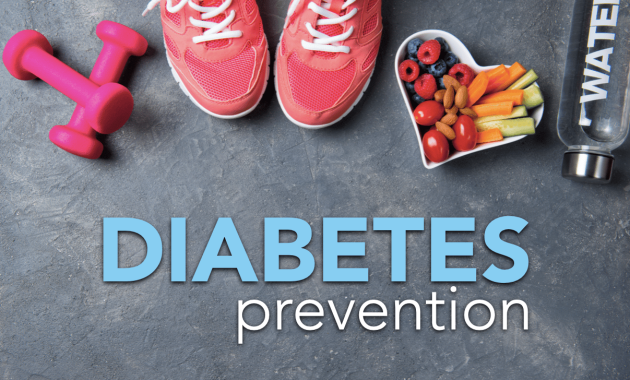
How to Stop Diabetes From Ruining Your Daily Productivity: A Practical Guide
Diabetes, a chronic metabolic disorder, affects millions worldwide. It significantly impacts daily life. Managing diabetes effectively is crucial. This guide offers practical strategies. They can help you regain control. This will boost your productivity. We will delve into the ways diabetes can affect your daily routine. We will also explore actionable steps. These steps will minimize its impact. They will help you thrive.
Understanding the Impact of Diabetes on Daily Productivity
Diabetes can manifest in various ways. It can hinder your ability to perform. It can significantly diminish your daily productivity. High or low blood sugar levels can lead to several problems. These include fatigue, brain fog, and frequent bathroom trips. These symptoms can disrupt focus. They can also impair cognitive function. This can affect work performance and personal tasks.
Furthermore, diabetes can also cause complications. These include nerve damage (neuropathy). They also include vision problems (retinopathy). These complications can exacerbate productivity issues. These issues can impact your ability to work. They can also impact your ability to engage in daily activities. The emotional toll of diabetes should not be overlooked. Stress and anxiety can worsen blood sugar control. They can also further reduce productivity.
Strategies to Improve Blood Sugar Control
Effective blood sugar management is fundamental. It’s the cornerstone of maintaining productivity. Several strategies are available. They can help you achieve optimal control.
Dietary Adjustments
Diet plays a vital role in diabetes management. Focus on a balanced diet. This diet should be rich in whole foods. These include fruits, vegetables, and lean proteins. Limit processed foods, sugary drinks, and saturated fats. These choices can cause blood sugar spikes. Consider consulting a registered dietitian. They can create a personalized meal plan. This plan will meet your specific needs.
Regular Physical Activity
Exercise is another key component. It enhances insulin sensitivity. It also helps regulate blood sugar levels. Aim for at least 150 minutes of moderate-intensity exercise. Do this each week. This could include brisk walking, swimming, or cycling. Incorporate strength training exercises. They can help improve glucose metabolism. Always consult your doctor before starting a new exercise regimen.
Medication and Monitoring
Adherence to prescribed medications is essential. They help manage blood sugar levels. Regularly monitor your blood glucose. Use a glucose meter or continuous glucose monitor (CGM). Keep a log of your readings. This will help you identify patterns. It also will allow you to make necessary adjustments. Communicate with your healthcare provider. They will help you optimize your medication regimen.
Optimizing Your Daily Routine for Diabetes Management
Integrating diabetes management into your daily routine is key. This will prevent disruptions. It will also maximize your productivity. Here are some practical tips.
Planning and Preparation
Plan your meals and snacks in advance. This ensures you have healthy options available. Pack snacks to avoid blood sugar dips. Prepare for potential emergencies. Carry fast-acting glucose. This is for treating hypoglycemia. Also, keep a diabetes kit handy. It should contain necessary supplies. These include insulin, syringes, and glucose meter.
Time Management and Breaks
Schedule regular breaks. They will help you manage your blood sugar. They will also help prevent fatigue. Take short breaks to check your blood glucose. Also, take breaks to eat snacks. These breaks are especially important during long work hours. Prioritize tasks and delegate when possible. This can help reduce stress. It will also improve time management.
Creating a Supportive Environment
Inform your colleagues, friends, and family. Let them know about your diabetes. Educate them about your needs. Ask for their support. This can help create a supportive environment. It will also reduce the stress of managing diabetes. Seek support from diabetes support groups. They offer valuable resources and encouragement. Consider attending workshops or educational programs. They will provide additional strategies for better management.
Addressing Common Productivity Challenges
Diabetes can lead to specific challenges. These can affect your productivity. Here’s how to address them:
Fatigue and Low Energy
Fatigue is a common symptom. It can significantly impact productivity. Ensure you get adequate sleep. Aim for 7-9 hours of quality sleep each night. Manage your blood sugar levels. This will prevent energy crashes. Stay hydrated throughout the day. Drink plenty of water. Incorporate short breaks. They will help you recharge. Consider scheduling tasks during your peak energy times.
Brain Fog and Cognitive Impairment
Brain fog can make it hard to concentrate. It can also make it difficult to think clearly. Manage your blood sugar levels. This can help reduce cognitive impairment. Practice mindfulness and meditation. These can improve focus. Exercise regularly to enhance cognitive function. Create a structured work environment. This will help with organization and focus.
Frequent Bathroom Trips
High blood sugar can increase the need to urinate. This can disrupt work. Stay well-hydrated. It’s important to maintain blood sugar control. Plan your work schedule. This will accommodate bathroom breaks. Discuss this with your employer. They may offer workplace accommodations.
The Role of Technology in Diabetes Management
Technology offers innovative tools. They can improve diabetes management. They can also boost productivity.
Continuous Glucose Monitoring (CGM)
CGMs provide real-time blood glucose data. They provide this data continuously. This helps identify patterns. This allows for quicker interventions. Some systems integrate with insulin pumps. They automate insulin delivery. This is known as automated insulin delivery (AID) systems.
Mobile Apps and Digital Tools
Numerous mobile apps are available. They can assist with diabetes management. These apps track blood glucose levels. They also track food intake and exercise. They can also provide medication reminders. Some apps offer personalized insights. These insights can help optimize your health. Use these tools to streamline your management efforts.
Long-Term Strategies for Sustained Productivity
Managing diabetes is an ongoing process. It requires long-term strategies. These will ensure sustained productivity.
Regular Check-ups and Healthcare Team
Schedule regular check-ups with your healthcare team. This team includes your doctor, endocrinologist, and other specialists. They can monitor your overall health. They can also adjust your treatment plan. This will help ensure long-term success. Stay informed about the latest advancements. They can enhance diabetes care.
Mental Health and Well-being
Prioritize your mental health. Diabetes can take a toll on your emotional well-being. Practice stress management techniques. These include mindfulness, meditation, and deep breathing. Consider seeking professional support. A therapist or counselor can provide guidance. They can help you cope with the challenges of diabetes. They can also help improve your overall well-being.
Lifestyle Integration and Adaptability
Integrate diabetes management seamlessly into your lifestyle. This will minimize disruptions. Be adaptable. Life can bring unexpected changes. Be prepared to adjust your routine. Adjust your strategies. This will manage your blood sugar effectively. Embrace a positive mindset. This will help you thrive despite diabetes. Focus on your overall health and well-being. This will enhance your productivity.
Conclusion: Taking Control of Your Productivity with Diabetes
Diabetes doesn’t have to ruin your daily productivity. By understanding its impact. By implementing proactive strategies. By adopting a proactive approach. You can regain control. You can live a fulfilling life. You can maintain high productivity levels. Prioritize blood sugar control. Integrate diabetes management into your daily routine. Embrace technology. Seek support. Make these your priorities. You can navigate the challenges of diabetes. You can also ensure your success. You can achieve optimal productivity. Remember, managing diabetes is a journey. It is not a destination. Stay informed. Stay proactive. Stay committed. This will help you to live your best life.
[See also: Related Article Titles]

